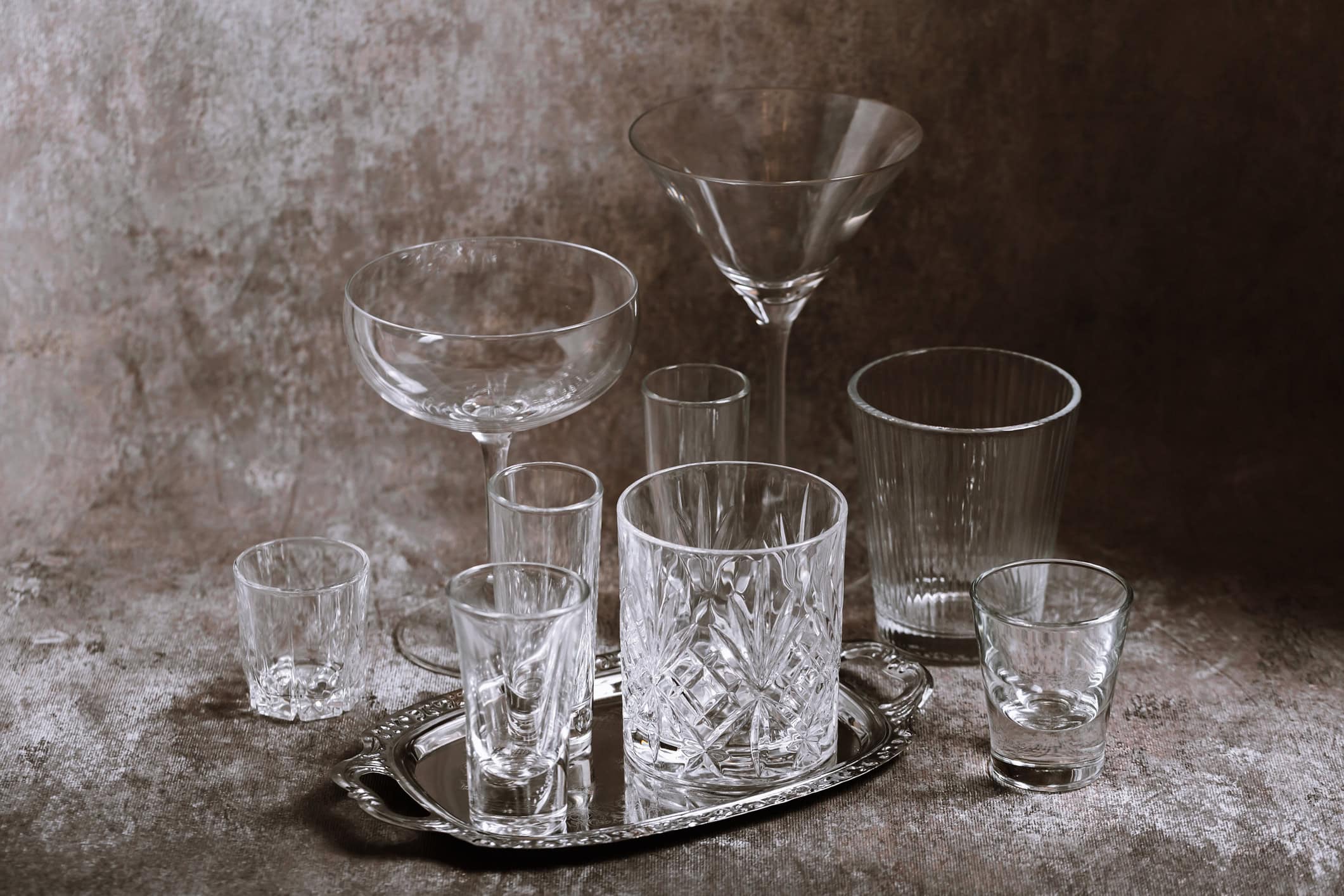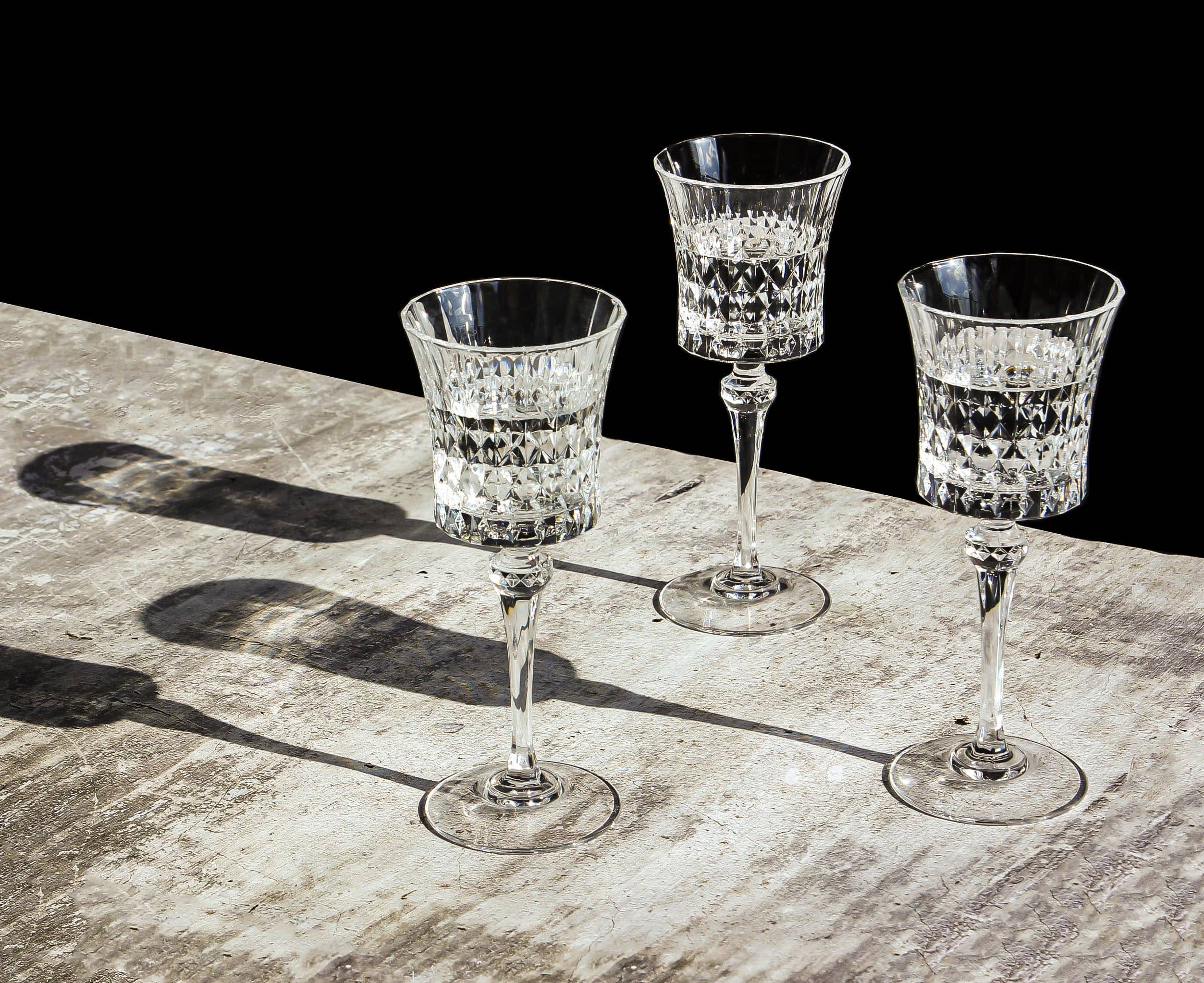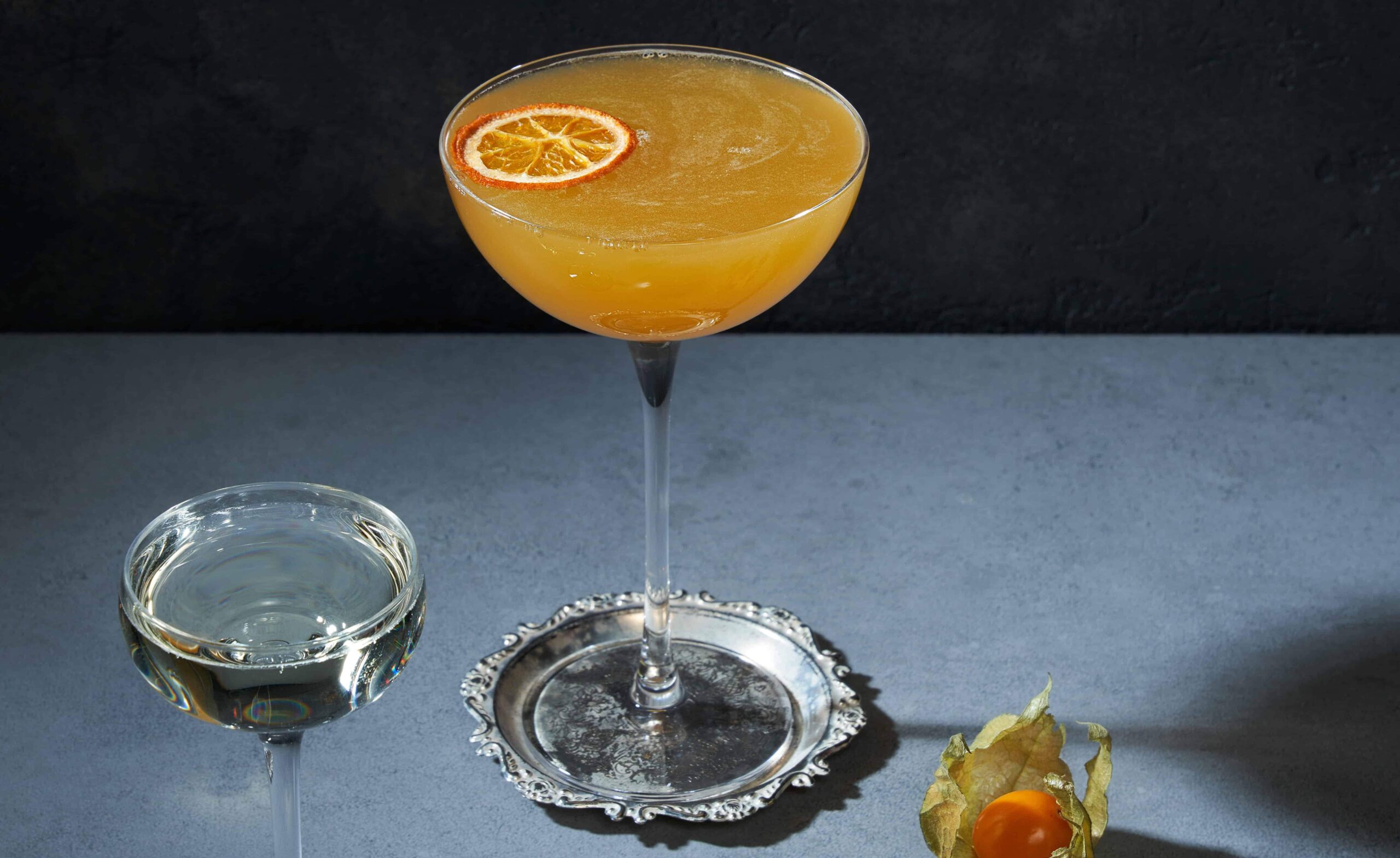Vodka is not just an alcoholic beverage, but also a part of culture, traditions and social etiquette. How it is served can significantly affect the impression of its taste and aroma. In this article, we will look at how to choose the right glasses for vodka, the different types of glassware, what to look for when choosing the material and shape, and the most common mistakes made by connoisseurs.
You will learn how to choose vodka glasses depending on the occasion, whether it is a tasting of a premium product or a festive meal. We will also mention how vodka is consumed in different countries and how the taste of the drink changes depending on the serving temperature and glassware.
Why it is important to choose the right glasses for drinking vodka
Choosing the right glassware for vodka is not just a matter of style or tradition. The shape, volume, material and thickness of the glass directly affect how we perceive the drink. It is especially important when tasting premium vodkas such as Nemiroff, where every detail matters, from the raw ingredients to the presentation.
The properly selected glass allows you to:
– maintain the optimal temperature of vodka, which is critical for smoothness and purity of taste;
– control the serving size, which is important in both gastronomy and professional tasting;
– reveal the aromatic profile of the drink, especially if the vodka has infusions or distinctive notes;
– shape the overall impression of the product — a sense of quality, adherence to drinking culture, attention to detail.
It is especially important when tasting high-quality products such as Nemiroff, where every detail matters — from ingredients to presentation.
The main types of vodka glasses
How to choose the right glasses for vodka? Different types of glassware can be used to serve vodka, depending on the purpose, temperature of the drink and even the format of the event. Each type of glass has its own advantages:
– Classic shot glasses are small, narrow glasses that are ideal for chilled vodka. They minimise contact with air and maintain the temperature of the drink.
– Tulip glasses have a narrow bottom and a wider top, which allows the aroma to unfold better. They are used for tasting and evaluating quality.
– Miniature stemmed glasses are convenient for serving vodka-based cocktails. Their elegant shape adds aesthetic appeal.
– Low, wide glasses (similar to those used for whisky) are suitable for drinking vodka with ice or in mixed drinks.
Shot glasses remain the most popular choice for classic serving, but they are not always the best option.
Which shape to choose: narrow or wide?
The shape of the glass plays an important role in the perception of vodka. It directly influences the following factors:
– Intensity of aromas — the wider the top of the glass, the better the subtle notes are revealed.
– Contact of the drink with air — affects aeration and changes in taste sensations.
– Speed of warming the liquid — the temperature is maintained longer in narrow glasses.
– Sensation of strength — the shape can emphasise or soften the alcohol on the tongue.
Narrow glasses are better suited for classic chilled vodka consumption — they minimise air exposure and help preserve the original taste. At the same time, wider tulip-shaped glasses allow you to appreciate the multifaceted aroma, which is especially important for premium lines such as Nemiroff products, where citrus, spicy or smoky notes are noticeable. In such glasses, the aromatic palette of the drink unfolds more fully and deeply.

Glass material: glass, crystal or other
The material from which the glass is made directly affects the overall impression of the vodka tasting, both visually and in terms of taste. Here are the main options:
– Glass is the most popular choice. It is versatile, affordable, retains temperature well and allows you to visually assess the clarity and transparency of the drink. Glass shot glasses are convenient for everyday use and tasting.
– Crystal is used for special occasions. Its thin walls create a more delicate sensation on the lips, and the material itself emphasises the status and elegance of the presentation. Crystal also better conveys the brilliance of the liquid, adding visual appeal.
– Metal, ceramics, and wood are non-standard options that are usually used in themed concepts or ethnic styles. These materials completely hide the appearance and aroma of the drink, so they are not suitable for tastings or connoisseurs.
The best choice remains transparent glass or crystal — they allow you to evaluate vodka comprehensively: from purity and viscosity to aroma and temperature.
Serving temperature and the role of the glass
The optimal temperature for drinking vodka is between 4 and 8 °C. Under these conditions, the taste profile is most balanced. It is important that the glasses are also chilled or at least at room temperature, rather than warm from your hands.
Thick-walled vodka glasses retain the temperature longer, and their narrow shape prevents the aroma from “evaporating” prematurely.
How vodka is consumed in different countries around the world
The culture of vodka tasting varies significantly depending on the region, and it is this culture that influences the choice of glassware:
– Ukraine and Poland. Vodka is served chilled in classic shot glasses. It is usually drunk in one gulp with hearty traditional snacks such as lard, herring and pickled vegetables. The drink is an important part of the feast.
– Scandinavian countries (Sweden, Denmark, Norway). Small glasses (snaps) are used, often with a narrowed top. Consumption is accompanied by singing songs (snapsvisor). Vodka is served at room temperature or slightly chilled.
– USA and Western Europe. Vodka is most often an ingredient in cocktails. It is served in wide glasses, shaker glasses, martini glasses. The glassware is chosen according to the type of mix.
– Japan. Vodka is served in mini glasses without cooling. Moderate tasting is popular, sometimes in combination with kaiseki-style appetisers. The aesthetics of the serving and the balance of taste are important.
Each country chooses the format that best supports the tradition of consumption and emphasises the properties of the drink.
Common mistakes when choosing glassware for drinking vodka
The wrong glassware can ruin even the best vodka. The most common mistakes are:
– Plastic cups. They affect the taste, do not maintain temperature, and create an impression of carelessness.
– Opaque or coloured glassware. It makes it impossible to assess the transparency and purity of the drink — key indicators of high-quality vodka.
– Glasses that are too wide or too deep. The aroma “scatters”, and the focus on the nuances of taste is lost.
– Warm glasses. They heat up the drink, making the taste sharper and less balanced.
Avoiding these mistakes is an important step towards the aesthetic presentation of alcohol.
Conclusions: how to make the right choice of glassware
In order for glassware to enhance the taste of vodka, it must be appropriate for the occasion, serving temperature and characteristics of the drink itself. There are several key factors to consider:
– type of event (traditional feast, tasting, cocktail party);
– desired serving temperature;
– type of vodka (classic, flavored, premium);
– visual and tactile preferences.
Classic table settings call for narrow glasses made of glass. If you are planning a tasting, you can choose tulip-shaped glasses, which help to reveal the aroma. Low glasses with thick bottoms are suitable for mixology.
You can find out more about drinks that deserve to be served properly on the website, which showcases the Nemiroff production process.




